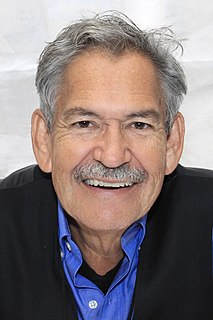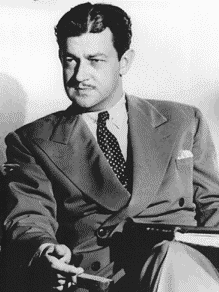A Quote by Martin Sheen
Well, I think that Catholicism's basic foundation of faith is personal conscience. I think it's between you and God, not you and the Church.
Quote Topics
Related Quotes
If you're going to say you're Catholic, you inform your conscience so that you're activities will conform to what God is telling us through the Church. If God is telling you something outside of that, well, the Church will look at that and say: we think it is true or we don't think it is true. The Church might say: that might be true for you but it has no public normative value.
I'm an ex-Catholic priest. I have such a complex relationship to Catholicism. On the one hand, if I called myself a Catholic it would have to be a very unorthodox one, as I just don't believe all of the teachings of the Church. But on the other hand, I'm an educated man because the Catholic Church educated me. It gave me something that is really important to me. So I always think about my faith. I always have it, and sometimes I can't talk about it, and sometimes I can. I am like an adolescent in that way. Teens are asking questions: who is God and what does it mean to have faith?
When I was in my early 20s I converted to Catholicism after a long period of searching. What I think drew me to the Catholic church is that in Catholicism, prayer suffuses all of one's life by virtue of the sacraments. Prayer is not something which occurs just on Sunday, it doesn't occur only at particular moments of intensity or by particular conventions, one's whole life is given up to prayer in many, many modes. And so everything to do with the faith is trying to put you in relationship with God and trying to make that relationship grow deeper and more mature.
I was nurtured in the church; I went to a Catholic school; I was an altar boy; I went to a Catholic university; I was steeped in the moral tradition of the Catholic Church. My Catholicism plays a very strong role. But I thought President John F.Kennedy answered rather well when he said that ultimately my conduct as a public official does not come ex cathedra from Rome; it comes from my conscience.
To me, God is Truth and Love; God is ethics and morality: God is fearlessness. God is the source of Light and Life and yet He is above and beyond all these. God is conscience... He is a personal God to those who need His personal presence. He is embodied to those who need His touch. He is the purest essence. He simply is to those who have faith. He is all things to all men.
I think marriage is between a man and a woman. I think we're all created equal in God's eyes, I think we need to respect and love those we disagree with. I think we can have religious liberty without discrimination. My views on marriage aren't evolving with the polls. It's based on my faith, I think it should remain between a man and a woman.
Now the ordinary Protestant, Jew or Secularist has a stereotype about Catholicism. It consists of Spanish Catholicism, Latin-American Catholicism and, let us say, a Catholicism of O'Connor's "Great Hurrah." Now there are types of Catholicism like that but this doesn't - this doesn't do justice to the genuine relation that Catholicism has had to Democratic Society.
Is there an aesthetic "fit" in my work between God and the world? The "I' in my poems has from the beginning identified himself as Catholic, and my books certainly can be read as presenting a Catholic theology "in a very particular sense." Catholicism is a faith morally identified with the human struggle for human dignity and justice. It is a vision of the world incarnationally rooted in the senses, a faith of and in spoken and written words - Scripture, "the Word of God," the Logos.


































